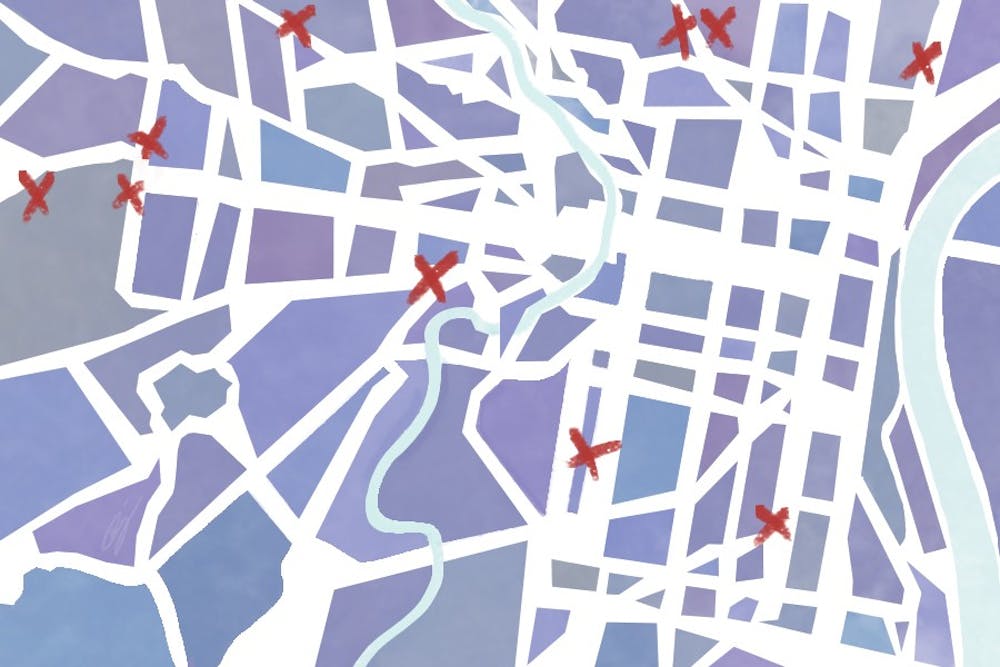Cable news reports in Philadelphia often begin with shootings that occurred that day. Senseless violence is a daily occurrence, but when the victim is a loved one, it can leave a permanent wound.
After a close friend was shot and killed, Zarinah Lomax was engulfed in grief. The Philly native decided to use her pain to confront the city’s epidemic of violence. Zarinah started a non–profit organization called Strength in Numbers Global that connects victims of gun violence to grief counselors and other non–profit organizations providing financial and housing support. She now hosts an award–winning talk show, Talking the Walk, which features weekly Philadelphia residents that have dealt with some form of trauma like gun violence.
The city of Philadelphia has thrown a lot of money at the issue of gun violence hoping it will go away. In 2021, the city approved a multimillion–dollar grant for community organizations addressing gun violence. But Lomax believes money alone can’t bring an end to the crisis.
“Untreated trauma is definitely a lot of the reason why people are doing what they are doing. Nobody's asking people if they're okay. They just assume that this next generation is a lost cause,” she says. Carrying around that burden is difficult for anyone, especially when new wounds are being inflicted before a previous wound can begin to heal. That trauma can lead many to seek escape and acceptance in the form of intoxication, medication, and violence.
Lomax is a childhood sexual assault survivor. Her father is serving a life sentence in prison. Many of her family and friends are victims of gun violence. Lomax admits that there was untreated trauma in her own life: “I did a lot of stupid things off of how I felt and because of things I never dealt with. I might not have picked up a gun but I picked up a drink, knowing that it can harm me."
But in the face of her own personal trauma, Lomax is a living example of what the city has to offer in resilience and selflessness. In addition to her current talk show, Lomax is launching a new show, Bridge the Gap, which brings young Philadelphians ranging from 15 to 22 years old on the air to discuss the generational differences in the city. Conversations like these, Lomax believes, are crucial to understanding the underlying causes behind the violence.
Lomax is also leading the push to create The Apologues Museum and Temple: a healing museum and monument to the trauma that Philadelphians have endured. She envisions the museum using art to tell the stories of victims and their families with onsite art therapy and mental health resources. She is currently fundraising to acquire space for the museum.
In a record–setting 2021, 559 Philadelphians, mostly young Black men, were murdered. All their stories were tragic—lives cut short, families left devastated, and gaping holes left in the community.
In these conditions, studies have found Post Traumatic Stress Disorder to be underdiagnosed in inner cities. Growing up surrounded by this violence can force children into a constant state of survival, affecting a child’s ability to learn, develop, and succeed in school. For adults, PTSD can be a perpetual weight on one’s shoulders that can lead to depression, anxiety, and other mental health issues.
The city has carried systemic trauma over generations. Generations of Philadelphians, particularly Black residents, have disproportionately faced police brutality, extreme poverty, and mass incarceration. Philadelphia also has a long history of redlining, or unfair housing segregation policies, that has severely disenfranchised predominantly–minority neighborhoods. Over–policing and a flawed criminal justice system have kept marginalized communities institutionalized, with few prospects of educational or professional advancement, while the city's schools are notoriously underfunded, making it more difficult for people to access educational opportunities. On top of all this, many Philadelphians have little to no access to mental health services. Historical injustices have trapped the city in a cycle of violent retribution and poor mental health that can manifest itself in the form of gun violence.
But we cannot properly confront the problem of gun violence without giving people the resources to heal.
This starts by offering free mental health services to all Philadelphians who need it, especially victims of violence. It requires educational and professional opportunities for youth to break the generational cycle of poverty. It needs criminal justice reform to reunite families and end mass incarceration.
Healing the city’s trauma will take work. There are a lot of necessary reforms and not a lot of time. But Philadelphians like Zarinah Lomax are optimistic in the face of adversity. “We can get the community base back together—the communal base of Philadelphia.”

